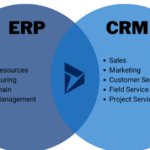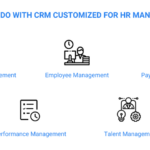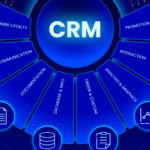Customer Relationship Management Software (CRM) may give the impression that it can only work for sales and marketing processes, but there is still to be determined the real range of tasks that can be optimized by implementing a CRM.
All processes of the supply chain have become globalized and as a result firms of all sizes are looking for software solutions to manage these processes. Although it may seem like a CRM cannot be compatible with processes of the supply chain as it is more focused on customer-related tasks like marketing and sales, we cannot deny the fact that the approach towards these tasks can be used to optimize every business processes.
Let’s dive deeper and see how CRM software which is one of the most versatile CRM solutions out there can help with the management of the supply chain.
Benefits of CRM for Supply Chain Management
To know how CRM software can help with supply chain management we must first understand the basic principles behind CRM. CRM software for business offers a database to collect and store business data like customers’ information, purchase history, etc. The advantage of this is that this data can be accessed from anywhere at any time to optimize different sales and marketing tasks. Furthermore, CRM software also offers the ability to automate numerous tasks like emails and calls so that less time is consumed by these tasks and the relevant team members can focus on more important operations. So how can this be useful for the supply chain?
The above-mentioned features of CRM software can be used to optimize numerous supply chain processes like customer requirements, warehouse management, purchase orders, inventory management, sales and distribution, sourcing, and enterprise resource management. CRM Software enables supply chain managers to gather data like customer preferences, their buying patterns and which outlets they visit. For example, when making important supply chain-based decisions about where to send which supplies, which suppliers deliver the most in-demand products or services, and how well products and services are performing, these data can prove crucial. This results in a more refined and cost-effective array of processes in the entire supply chain. The data and information collected via CRM software highlight key supply chain factors such as supplier choices, logistics, which supplies are in higher/lower demand, and how the customer uses the company’s products through their lifecycle. Supply can meet customer demands more efficiently when it synchronizes with customer information from a CRM. The integration of CRM software for business to your supply chain can boost the overall productivity of your business by affecting the following factors also.
Reduced Data Entry
Using CRM software as the one platform to collect and store all the customers’ data greatly optimizes the process of data collection. The one database eliminates inconsistencies and duplicates in the stored information making it more reliable and easy to access.
Improved Purchasing
Synching CRM with the supply chain gives you a clear idea of what your customers want and also is the desired product available to them or not. This insight is vital for a business to stimulate sales and grow.
Why CRM Software Is The Best Supply Chain Management Software?
Using CRM software for supply chain management can automate time-consuming tasks like sending emails to suppliers and scheduling imports and exports. This can greatly streamline the supply chain process and allow for faster transport of products through the supply pipeline.
If you’re looking to upgrade the entire process of managing your supply chain then CRM software is the perfect solution you need. It will enhance the entire supply pipeline to ensure that in-demand products are reaching the customers in time.






0 Comments